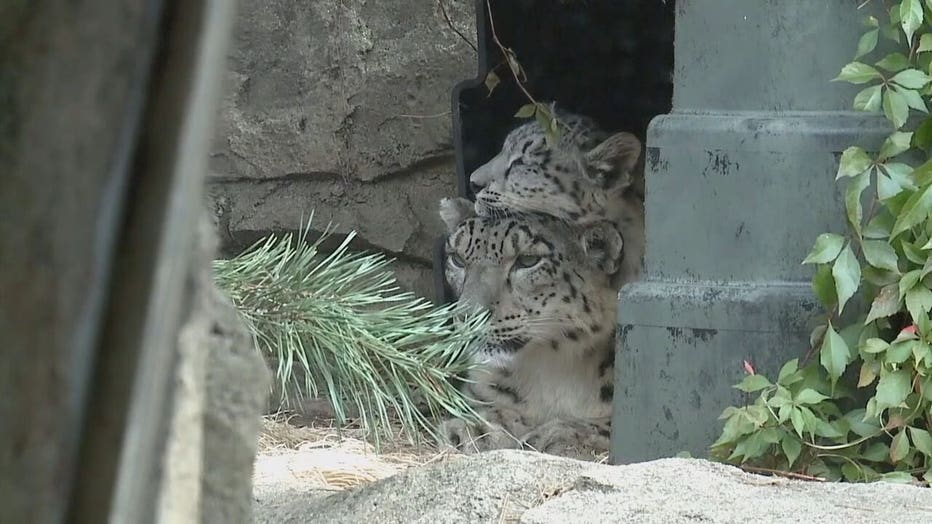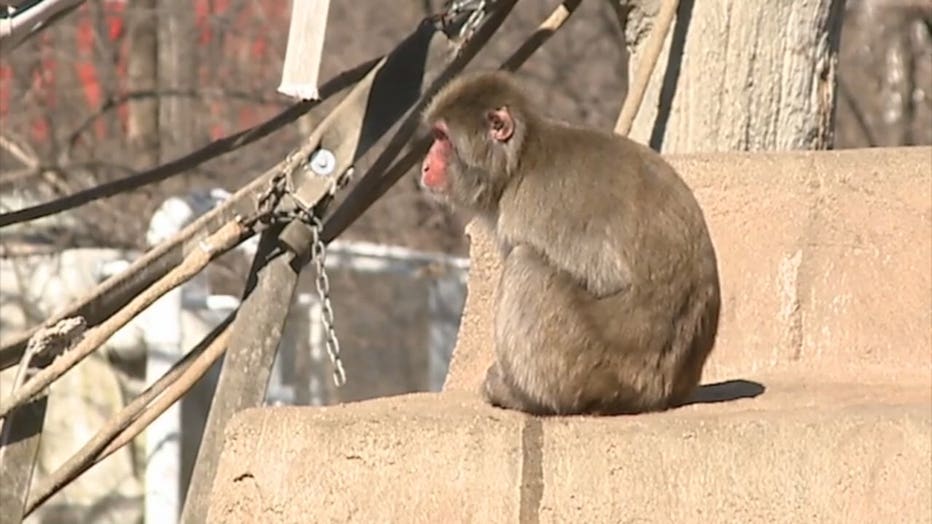COVID vaccine for zoo animals in Wisconsin
MADISON, Wis. - Some animals at the zoos in Madison and Milwaukee will receive an experimental COVID-19 vaccine.
Animals susceptible to the respiratory disease are expected to be inoculated with the vaccine authorized by the U.S. Department of Agriculture by late July.

No COVID-19 infections have been found in animals at the Milwaukee County Zoo or the Henry Vilas Zoo in Madison, but some of the big cats at the Bronx Zoo became sick when the pandemic was peaking in New York City.
The Centers for Disease Control and Prevention said it is likely the animals became sick after being exposed to a caretaker with COVID-19, even though staff was taking precautions.
At the Henry Vilas Zoo, deputy director Joseph Darcangelo said the vaccine will be given to great apes, tigers and lions, and members of the mustelid family, including otters, skunks and badgers, Wisconsin Public Radio News reported.
FREE DOWNLOAD: Get breaking news alerts in the FOX6 News app for iOS or Android.
Milwaukee County Zoo spokeswoman Jennifer Diliberti-Shea said the animals routinely get vaccinations.
"That’s something that our animal care team does for various diseases. Obviously, with COVID-19, we were waiting until there was a vaccine that we could give them," she said.

The animal medical company Zoetis plans to donate more than 11,000 doses to zoos across the country, including in Madison and Milwaukee.
Big cats, primates and otters will be among the first at the Milwaukee County Zoo to receive the vaccine.
"Eagerly anticipating its arrival," said Dr. Pamela Govett, Milwaukee County Zoo senior staff veterinarian. "We plan on vaccinating the animals that have been shown to be susceptible to natural infection by COVID-19, and that includes our great apes, most of our primates, our big cats and otters."
From there, they plan to vaccinate more animals.
"We have the largest bonobo population in the United States, and they are extremely susceptible to respiratory infections," said Govett. "We vaccinate them every year for influenza, and we were definitely worried."

The veterinary staff already is accustomed to vaccinating different animals against other diseases.
"The keepers have a very strong relationship with the animals, and they will just ask them to provide a shoulder, a hip, and they will," said Govett. "Sometimes, we administer them through a syringe attached to a pole. Other times, we can administer it through what we call a ‘blow dart’ or a carbon dioxide injected dart."
Zoo officials hope this will prevent any deaths or illnesses, especially those potentially spread by people.
"We, so far, have been fortunate," said Govett.

